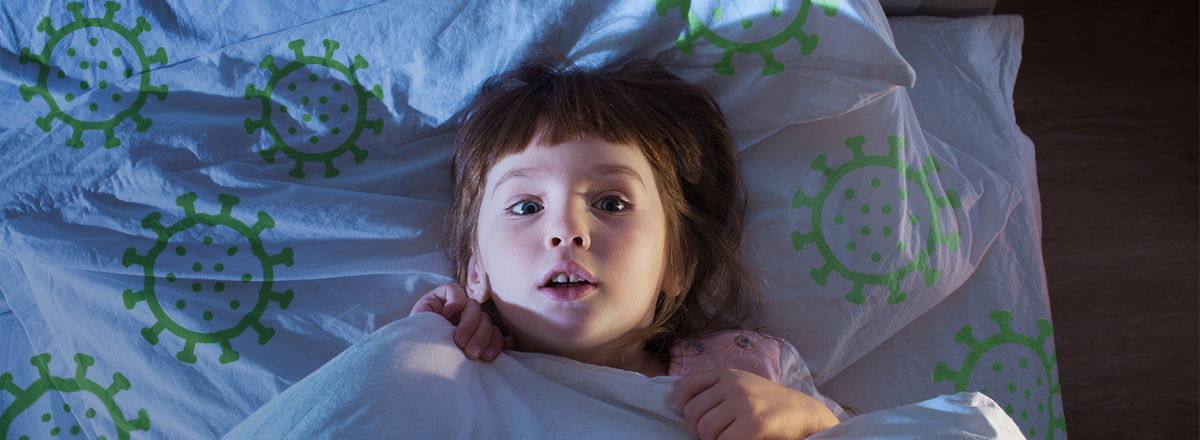Perhaps you or your relatives noticed that they’d been having strange dreams lately. Or it’s the other way around – you haven’t had dreams in a while, and insomnia has become your faithful companion in quarantine. All of these are signs of stress that many people have experienced during the coronavirus pandemic. In this article, we will tell you how sleep disorders are associated with COVID-19 and what to do about it.
The year 2020 brought a lot of new things and stoked fear of the unknown that each and every person has experienced. And it’s not only about health. We don’t know what will happen tomorrow, like whether we will have a job or money to pay our rent with. These thoughts lead to anxiety and depression, as well as to the main sign of stress – sleep disorders. It is generally believed that the main synonym of sleep disorder is insomnia, that is, having trouble falling asleep, waking up frequently at night, and inability to fall asleep again.
But there’s also an opposite reaction – hypersomnia, which is excessive sleepiness. Even though we were faced with an invisible enemy (you could only see it under an electron microscope) and we have the crucial recommendation for maintaining our health, which is to stay at home, we are still bogged down in stress. Stress-related processes make our body mobilized, which means staying awake. Regularly reading news adds more stress, and the bright phone screen (if you use it before bedtime, for example, for reading) additionally activates your nervous system and tells it that it’s not night yet.
Many people who first encountered remote work experienced a shift in their regimen and daily routine. For instance, if it is difficult for them to concentrate because of the noise during the day, people begin to work at night when their family members go to bed. This leads to interrupted dreams in the daytime, in the light, and still with the same annoying noise. Due to the lack of physical activity, we cannot normally spend the accumulated energy, and our bodies simply do not get tired enough.
In Google, the number of “Why am I having weird dreams lately?” and “COVID-19 dreams” queries has rapidly increased.
During stress, some protective processes take place in the brain, provoking realistic dreams and nightmares. You may have experienced this during exams at the university or in any other tense situation. Currently, many people are experiencing stress at once, that is why weird dreams happen more often. A person only remembers a dream if he/she wakes up in time at a particular moment. If you sleep for some time after the phase of dreams, you will hardly remember anything in the morning.

Insomnia, changes in the daily regimen, and noise make us wake up more often, which means we remember what we were dreaming about. In the light of this, a site called “i dream of covid” even appeared, where everyone can share their dreams and do this anonymously. According to scientists from the Lyon Neuroscience Research Center, people have become 35% more likely to remember their dreams.
How can one make the sleep situation better?
- Let your first step towards a healthy sleep be a normalization of your daily routine. This means that you need to agree with yourself that you will go to bed no later than, for example, at midnight.
- We have already told about the importance of moving during quarantine and self-isolation many times, and we even wrote an article about how to stay active this summer while staying at home. Let us remind you that you don’t have to set any records and lose 10 kilos a week. Simply let your psyche rest with a small workout or set of exercises, stretch your body. After that, you will sleep like the dead, we guarantee.
- Come up with a ritual of relaxation and unwinding. It can be anything other than scrolling your feed on social media. For example, a facial mask, having a bath, or reading.
- Do not abuse caffeine and alcohol. While staying at home, you can start drinking glasses of wine or cups of coffee at lunch out of boredom, and by afternoon, you will lose track of what you’ve drunk. Caffeine and alcohol act as central nervous system stimulants, and it is better to let it rest for now.
- If dreams disturb and frighten you a lot, discuss medication with your doctor. Nowadays, many clinics provide online consultations, so if you are really worried about insomnia, it is worth discussing it with your doctor.
- Don’t forget that this is just a temporary inconvenience. The quarantine will be over, you will get back to your normal life, and the quality of your sleep will improve. Do not make a disaster out of insomnia – it is better to keep an interesting book by the bed.


















